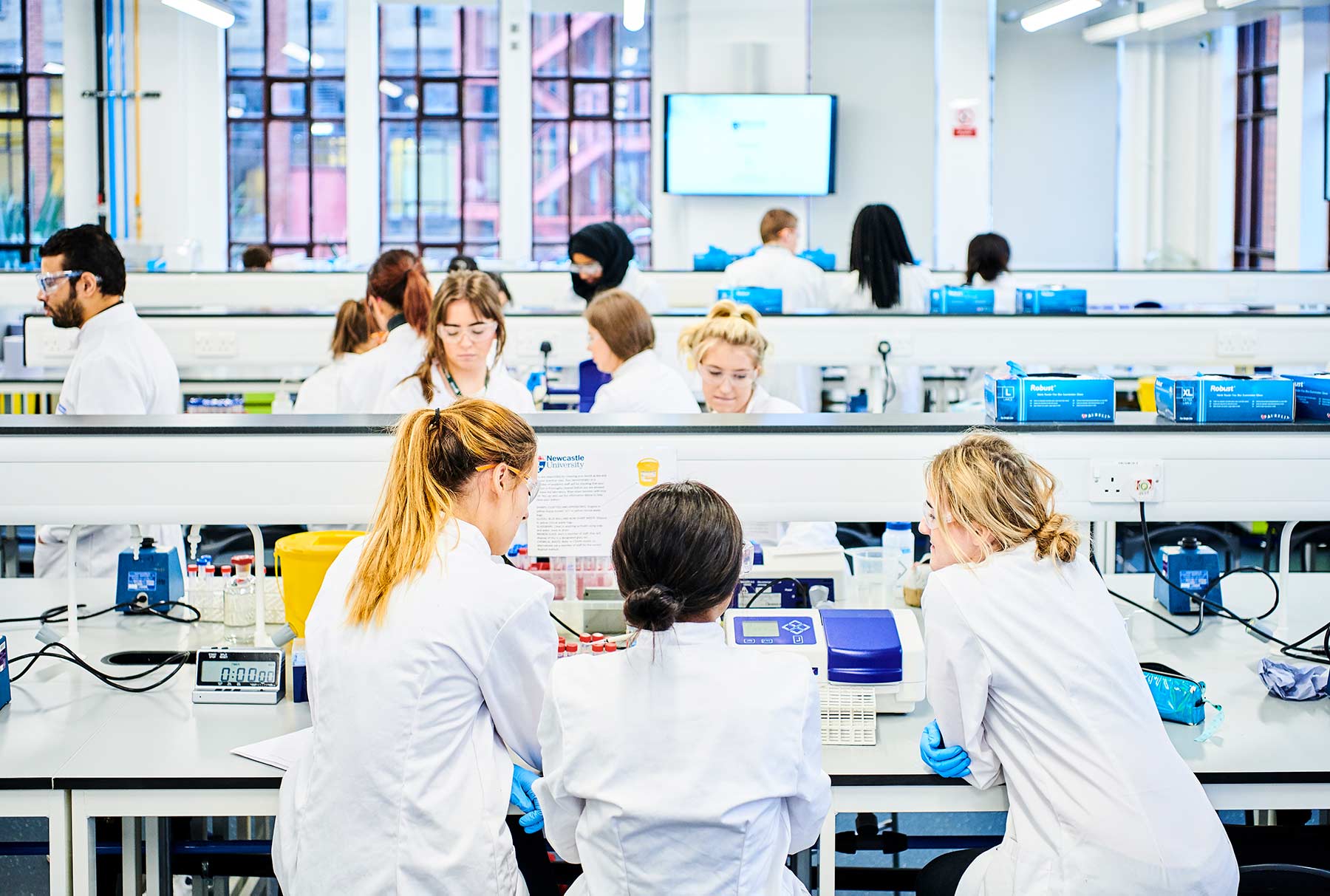About The MPharm
Our Pharmacy MPharm degree is divided into four stages. Each Stage develops your theoretical knowledge and practical skills further. Each Stage lasts for an academic year and you need to complete modules totalling 120 credits by the end of each Stage. This ensures you graduate with the necessary understanding, skills and professional competencies.
After your degree, you'll need to complete a foundation training year to register as a pharmacist. Throughout your degree, we'll help prepare you for this next step in your professional journey.
Stage 1
The first year will comprise a single, integrated module, Fundamentals of Pharmacy: the Integration of Science and Practice.
This module will focus on patient-orientated problems. You will have access to patients from the very start of the course to ensure that you understand how to apply knowledge and skills.
You'll study:
- the normal structure and function of the human body
- pharmacology, medicinal chemistry and formulation science in terms of identifying and developing drug substances, then formulating them into acceptable and effective medicines
- micro-organisms and their role as agents of infection, but also in terms of the damage they can cause to pharmaceutical products
You'll gain experience of the pharmacy workplace and learn a range of professional and practical skills:
- how to talk to patients and work within healthcare teams, all focused on the effective use of medicines
- simple examination skills and aspects of physiological monitoring
- the importance of professional identity
- the dynamic working situations that result from multi-professional networking
- research skills, including literature searching, academic writing and referencing, statistics and how each is applied to pharmaceutical research
Stage 2
The second year will build on previous studies and will continue the focus on patients.
You study a single integrated module, Pharmaceutical Care: Pathology, Patients and Professionalism.
You will examine abnormal pathology and subsequent therapeutic options to deal with disease, including chronic disease management.
This material will be fully integrated with cutting-edge pharmaceutical science. Plus, it will be built upon by continuing to give experience of the workplace.
You will also study:
- law as it is relevant to pharmacy
- systems for medicines management including the development and use of clinical guidelines and formularies
- patient communication; communicating complex information to patients at a level that is understandable
Stage 3
You study a single integrated module, Applied Pharmaceutical Interventions: Design, Delivery and Decisions.
You will be presented with more complex, patient-based examples. These will include multiple disease states and complex therapeutic interventions.
You will develop an understanding of how medicines are used simultaneously. Plus, how adverse effects are monitored and managed.
The development of drugs from first principles will be examined. This will include the use of molecular modelling techniques to analyse molecular structure in the context of drug action.
You will study state-of-the-art formulation of injections, implantable medicinal devices and transdermal delivery devices. You'll also continue to develop vital skills in:
- decision-making
- communication
- consultation
- examination
As with other modules, inter-professional learning sessions and pharmacy placement will support development.
Stage 4
The fourth year will contain two 60-credit modules.
The first module allows you to choose an area of pharmacy to study in more detail as part of a Research Project. Potential areas for focus are:
- medicinal chemistry
- pharmacology
- pharmacy practice
- formulation science
- pharmaceutical microbiology
This project will be supervised by one of the academic staff. It will be closely related to their expertise and current research interests.
We have international study abroad links. This means it's possible for you to take the practical aspect of your project at a partner institution overseas.
The second, Targeted Therapeutics: Optimisation, Critique and Responsibility will focus on preparing for practice.
You will examine specific areas of oncology, infection and immunology. Including support strategies for patients suffering from such diseases.
You'll examine state-of-the-art formulation devices used in the delivery of chemotherapy and associated medicines, including the use of nanotechnology.
The importance of personalised medicine will be discussed in detail. You will encounter complex clinical problems, which you will be required to manage from first principles.
